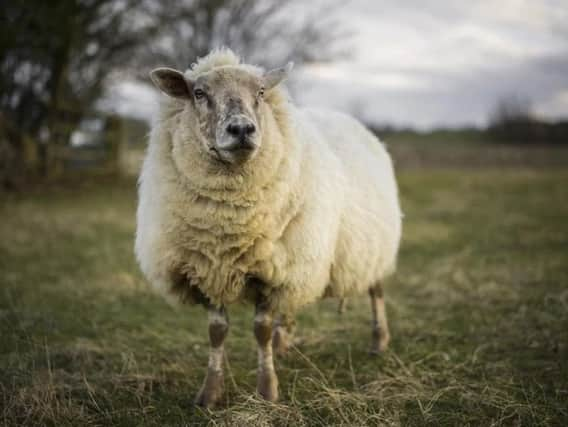Bluetongue virus warning as midge season approaches


The virus, which is transmitted by midges, can infect all ruminants including cattle, sheep and goats, and can reduce milk yield, cause sickness, reduce reproductive performance or, in the most severe cases, causing death in adult animals.
However, it does not affect people, and meat and milk from infected animals are safe to eat and drink.
Advertisement
Hide AdAdvertisement
Hide AdThe Department of Environment, Food and Rural Affairs (Defra) have published an assessment highlighting a currently low risk of Bluetongue (BTV) incursion, leading to the BVA and the Goat Veterinary Society joining with Defra, the National Farmers’ Union (NFU) and other organisations in urging farmers, livestock keepers and vets to all remain vigilant over the Bluetongue virus risk.
British Veterinary Association Junior Vice President John Fishwick said: “This is an important reminder to vets, farmers and anyone working with livestock, particularly those in the south east of England, to remain vigilant for any signs of Bluetongue in their animals.
“The message we’d like farmers to hear is to closely monitor their stock for Bluetongue symptoms, which could include eye and nasal discharge, drooling, swelling around the head or mouth, lethargy and lameness. We know that the disease is circulating in France and, although there are indications that clinical signs have been quite mild there, we cannot predict how the disease will present itself in our herds.
“We are strongly encouraging vets to work with local farmers in protecting the health and welfare of their livestock, especially if they have any concerns - discussing the benefits of vaccination as one of the key methods of control, while, obviously, taking into consideration their locality and individual circumstances.”
Advertisement
Hide AdAdvertisement
Hide AdBluetongue is a notifiable disease and any suspicion of the disease must be reported immediately to the Animal and Plant Health Agency (APHA) on 03000 200 301.
Defra have indicated that the risk level may change as we move into summer - however, regular risk assessments will be published on GOV.UK and all disease control measures are kept under review based on the latest scientific evidence and veterinary advice.